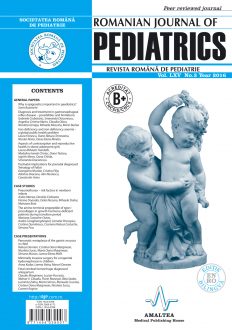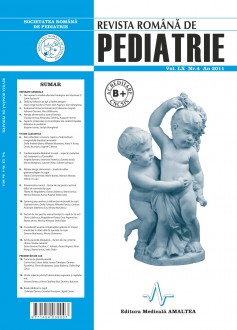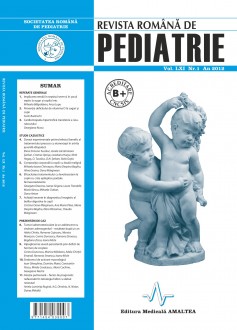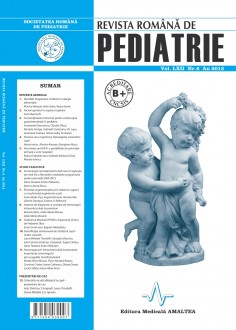SELECT ISSUE

Indexed

| |

|
|
|
| |
|
|
|

|
|
|
|
|
|
|
HIGHLIGHTS
National Awards “Science and Research”
NEW! RJP has announced the annually National Award for "Science and Research" for the best scientific articles published throughout the year in the official journal.
Read the Recommendations for the Conduct, Reporting, Editing, and Publication of Scholarly work in Medical Journals.
The published medical research literature is a global public good. Medical journal editors have a social responsibility to promote global health by publishing, whenever possible, research that furthers health worldwide.
DE CE ESTE EPIGENETICA IMPORTANTA PENTRU PEDIATRIE?
REZUMAT
Înţelegerea schimbărilor de patologie din ultimele decade a devenit posibilă datorită achiziţiilor epigenetice. Această ramură a geneticii explică cum influenţează mediul funcţionarea dinamică a genelor. Variaţiile epigenetice sunt determinate de nutriţie, infecţii, noxe chimice, stres. Programarea metabolică iniţiată din viaţa fetală este determinantă pentru patologia cronică a vârstei adulte. Infecţiile, bolile alergice, afecţiunile maligne, prezintă o semnificativă dimensiune epigenetică. Medicul pediatru, acţionând la începutul ciclului de viaţă, poate interveni în derularea acestor procese prin abordarea profilactică şi prin terapia epigenetică, ultima fiind în curs de cristalizare.
Cuvinte cheie: pediatrie, epigenetică, programare, terapie



